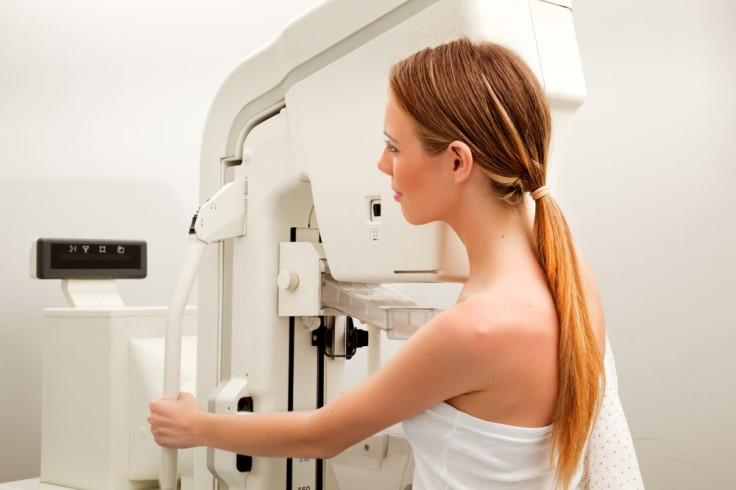Self-Breast Exams May Lead To Unnecessary 'Harm And Anxiety,' Expert Charges

The British tabloid The Sun earlier this month announced a new breast cancer awareness campaign promoting weekly self-examinations — but one expert believes the push may do more harm than good.
The campaign, which the tabloid runs in cooperation with the charity CoppaFeel!, calls on women across the world to embrace what it calls “Check ‘Em Tuesday” and start self-examining their breasts on a weekly basis. To help improve compliance, the campaign runners offer regular text message reminders for participants. Speaking to The Guardian, CoppaFeel! founder Kris Hallenga called the collaboration between the tabloid and the charity “a brilliant platform to get across a life-saving message.”
Hallenga, who’s been campaigning since 2009, was diagnosed with breast cancer shortly after her 23rd birthday and is currently undergoing treatment for a stage four tumor.
"Doctors across the country have been overwhelmingly supportive of our Check 'Em Tuesday campaign with The Sun,” she told the Huffington Post. “Breast awareness is recommended by the Department of Health and all major breast cancer charities in the UK."
However, not all experts appear to be onboard with the awareness drive. Dr. Margaret McCartney, for one, is not impressed. Writing for the British Medical Journal, she charges that teaching women self-examination “has been shown not to reduce deaths from breast cancer and actually increases the chances of a benign biopsy result.”
As more and more women perform self-examinations without the expertise needed to distinguish between cancers and harmless growths, more time and resources will be wasted on unnecessary procedures, she says. For the women involved, “Check ‘Em Tuesday” may lead to little more than unnecessary worry.
“[It’s] unfair to tell women that regular self-examination will save their lives when it may simply incur anxiety and have the potential to harm,” McCartney added.
Science-Based Screening and Awareness
To be fair, CoppaFeel! doesn’t claim that “Check ‘Em Tuesday” will save the participants’ lives, but rather that weekly self-exams can help their primary care provider intervene in time. Still, McCartney explains that the campaign follows in a growing line of awareness drives that do not place enough emphasis on hard science.
Another example, she says, is the charity Breakthrough Breast Cancer, which encourages women to “touch – look – feel” and know “what your breasts look and feel like normally.” Similarly, the UK’s National Health Service recommends that women self-examine at different times of the month. The National Institutes of Health, on the other hand, cautions that self-examination is not for everyone.
“If we fail to critically evaluate campaigns on cancer, we create the appearance of doing something useful while potentially distracting from what might really help,” McCartney told reporters. “In doing so we potentially harm the very women we’re purporting to help.”
Breast cancer is currently the second most deadly cancer among U.S. women, affecting over 200,000 and killing 40,000 each year. It is estimated that one in every eight women will develop the disease at some point in their life. While the cause remains unknown, risk factors include early puberty, late menopause, and certain genes. Lifestyle factors like calorie intake and alcohol consumption have also been implicated in higher risk for diagnosis.



























